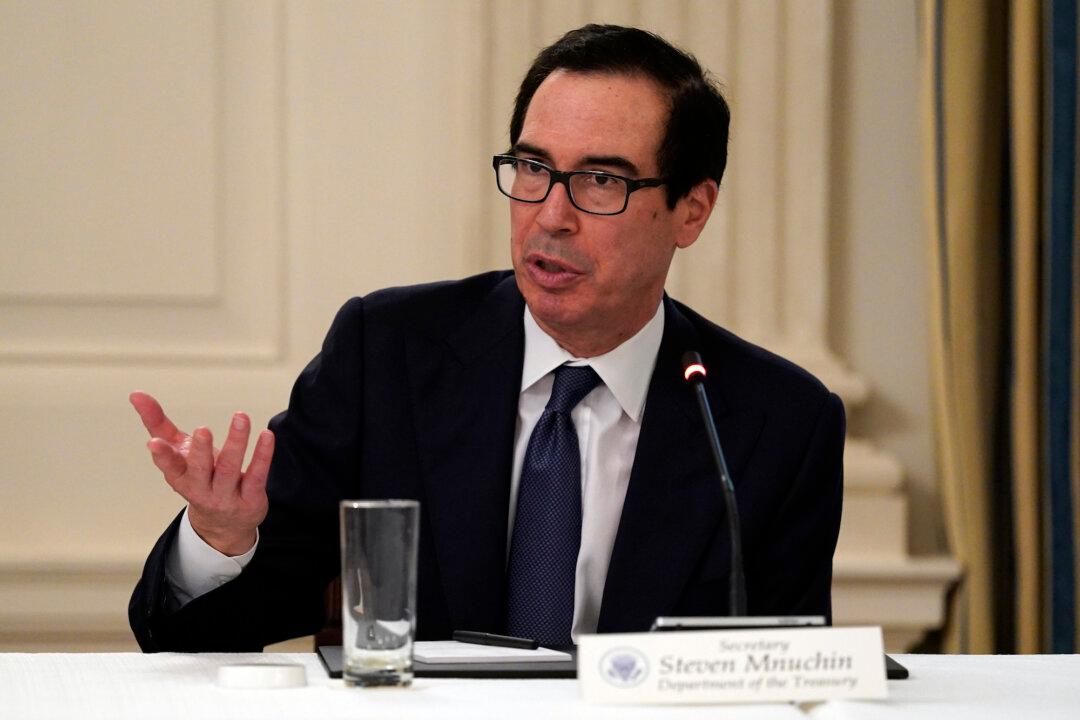Treasury Secretary Steven Mnuchin and Federal Reserve Chairman Jerome Powell were pressed by senators Tuesday about their management of the government’s emergency relief programs deployed to ease the pandemic hit to American families and businesses.
“The CARES Act is the biggest rescue package in the history of Congress, and we need to make sure the dollars and program quickly find their mark,” Senate Banking Committee Chairman Mike Crapo (R-Idaho) said at the beginning of the hearing, held remotely.





